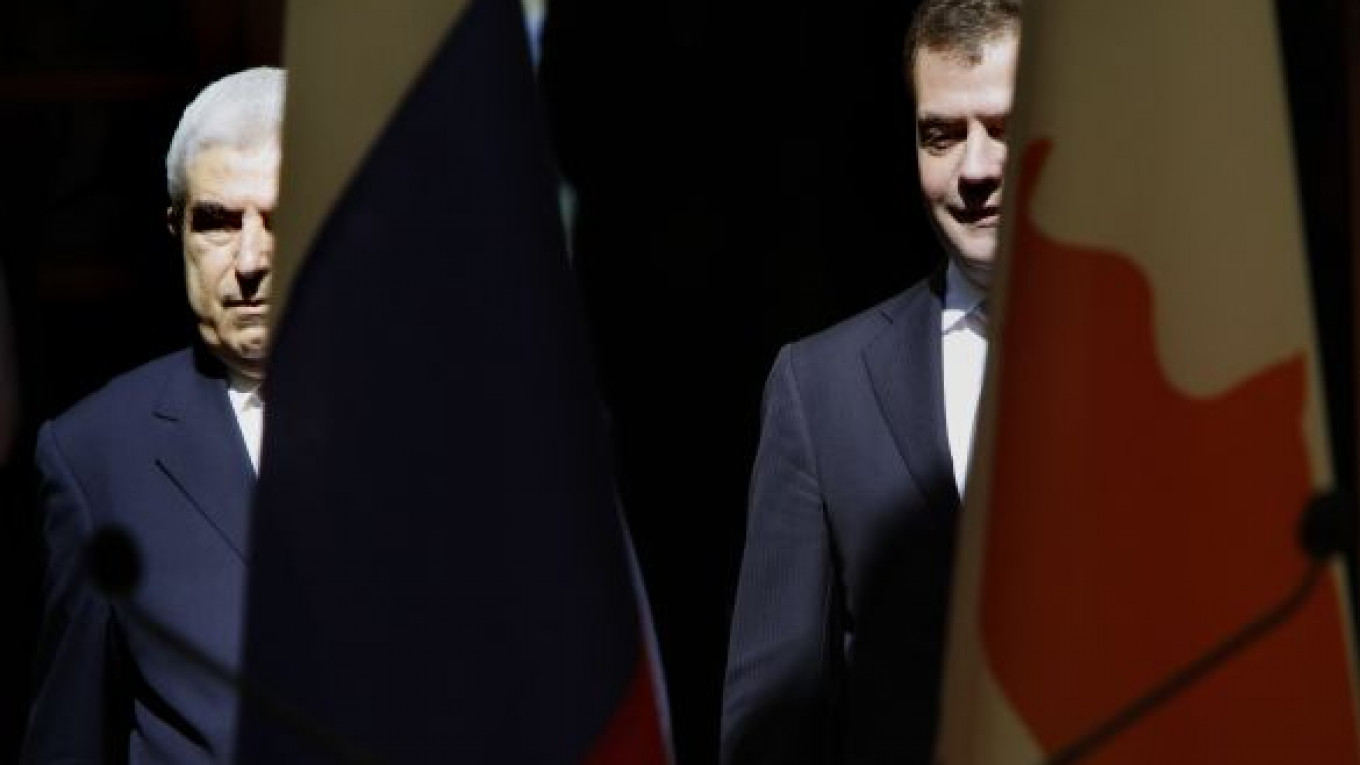NICOSIA, Cyprus — Russia and Cyprus signed a tax treaty on Thursday expected to strengthen business ties and reaffirm Cyprus' status as a primary source of foreign investment in Russia.
President Dmitry Medvedev, on a fleeting visit to the east Mediterranean island, led a delegation that signed pacts ranging from a double taxation accord to technology, health and tourism agreements.
"Our economic cooperation is developing very strongly, and it is not a one-way street," Medvedev told reporters after a meeting with Cypriot President Dimitris Christofias.
Cyprus has a long history of links with Russia, and the former Soviet Union before that. Trade ties, which at one time involved bartering Cypriot wine for Russian tractors, are now worth billions of dollars.
Cyprus, with one of the lowest corporate tax rates in the European Union, is an important springboard for investing in Russia. Some 20 percent of the $262.6 billion invested there since the collapse of the Soviet Union has been via Cyprus.
Thousands of the island's registered companies are Russian and reinvest their profits in Russia. Cyprus has about 60,000 Russian speakers in a population of less than 1 million, and Soviet-educated Christofias is the EU's only communist head of state and a fluent Russian speaker.
"There is a lot of momentum to strengthen and expand our ties," the Cypriot leader said.
The new tax deal effectively takes Cyprus off a Russian "black list" of jurisdictions where authorities failed to cooperate adequately with Russian tax collectors.
It aims at blocking loopholes in Russia's drive to tackle tax evasion. Most of the money invested by Cyprus-based Russian businesses left Russia in the turmoil of the 1990s.
Deputy Finance Minister Sergei Shatalov said the treaty outlines cooperation between tax authorities on collecting taxes, and changes the tax regime for mutual funds, real estate and companies owning real estate.
"Thus the possibilities of not paying taxes in Russia when making transactions with real estate are significantly reduced," he said.
"Cyprus is perceived by our businessmen as a very convenient platform to make investments," Medvedev said.
"The amendments to the agreement on avoiding double taxation that have just been signed are aimed at making this area more predictable, transparent and understandable for the authorities regulating it," he said.
Medvedev also inaugurated a branch of VTB Bank subsidiary Russian Commercial Bank in the capital, Nicosia, and addressed a Cyprus-Russia business forum.
Medvedev, who is the first Russian head of state to visit the ethnically divided island, reiterated Moscow's support for long-running reunification talks.
Cyprus was split into an internationally recognized Greek Cypriot south and a breakaway Turkish Cypriot north in 1974, when Turkey invaded in response to a short-lived coup by supporters of union with Greece.
Two years of peace talks have produced limited progress on complex issues such as arrangements on private property lost during the war.
Greek Cypriots envision a future federation with a strong central government, while Turkish Cypriots seek a looser union.
The Greek Cypriot government has long relied on Russian backing in past peace drives, and Medvedev said Moscow's support for a reunified Cyprus with a single sovereignty remains unchanged.
Christofias thanked Medvedev for Russia's position, saying: "For us, the support of the Russian Federation, one of the permanent members of the UN Security Council, is invaluable."
Medvedev said Russia's growing commercial and political relations with Turkey "don't pose a threat" to Cyprus. In May, Turkey and Russia signed 17 cooperation agreements, including the construction of Turkey's first nuclear power plant near the Mediterranean coastal town of Akkuyu.
Medvedev was to leave Cyprus on Thursday night.
(Reuters, AP)
A Message from The Moscow Times:
Dear readers,
We are facing unprecedented challenges. Russia's Prosecutor General's Office has designated The Moscow Times as an "undesirable" organization, criminalizing our work and putting our staff at risk of prosecution. This follows our earlier unjust labeling as a "foreign agent."
These actions are direct attempts to silence independent journalism in Russia. The authorities claim our work "discredits the decisions of the Russian leadership." We see things differently: we strive to provide accurate, unbiased reporting on Russia.
We, the journalists of The Moscow Times, refuse to be silenced. But to continue our work, we need your help.
Your support, no matter how small, makes a world of difference. If you can, please support us monthly starting from just $2. It's quick to set up, and every contribution makes a significant impact.
By supporting The Moscow Times, you're defending open, independent journalism in the face of repression. Thank you for standing with us.
Remind me later.






